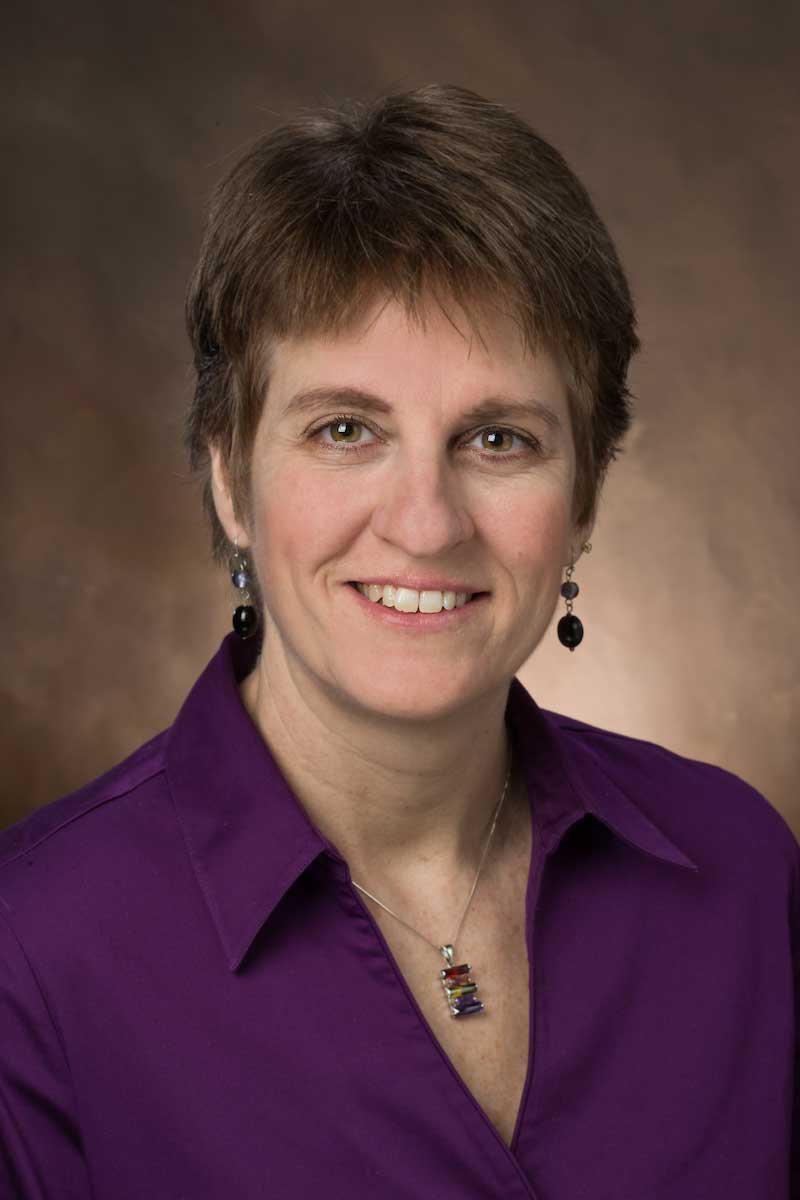
Melissa Chase, Ph.D.
Links
Educational Credentials
- Ph.D., Physical Education and Exercise Science, Michigan State University
- M.A., Physical Education and Exercise Science, Michigan State University
- B.S., Education, Physical Education, Bowling Green State University
Meet Your Professor
Courses Taught
- SLM 634 Social Psychology of Sport
- SLM 272 Sport Leadership
- SLM 338 Psychosocial Aspects of Coaching
- SLM 447/547 Sport Pedagogy for Coaches
- SLM 438/538 Coaching Effectiveness
Research Interests
My scholarly focus centers on understanding human behavior in physical activity and sport within the conceptual framework of self-efficacy theory. My early research focused on the development of self-efficacy in children. I examined which sources of information children selected to form their efficacy beliefs and how their self-efficacy influenced their motivation (choice, effort, persistence) to participate in sport and to be physically active.
My current research continues to examine the impact coaches have on children’s participation in sport. This research specifically examines the youth sport parent-coach (a coach who is also the parent of an athlete on the team). My research has examined the levels of coaching efficacy, qualifications, and motives of youth sport parent-coaches in relation to youth sport coaches, from the perspective of the coach and youth sport administrator. I am currently exploring how coaches and parents impact sport specialization in youth sports
My overall motivation as a researcher is to utilize the tenets of self-efficacy theory to understand and thus enhance the sport experience for children and coaches. I am committed to a theory to practice endeavor, based on my prior life experiences as an athlete, physical educator, and coach, as well as my belief that self-efficacy theory provides insightful explanatory concepts that enable us to more fully understand human behavior.
Select Publications
Books
- Vealey, R. S. & Chase, M. A. (2016). Best practice for youth sport. Champaign: IL, Human Kinetics.
- Vealey, R. S. & Chase, M. A. (2016). Instructor’s Guide - Best practice for youth sport. Champaign: IL, Human Kinetics.
Book Chapters (* with former or current student)
- *Pierce, S. W., *Wright, E., & Chase, M. A. (2023). Children. In David Tod, Ken Hodge, and Vikki Krane (Eds.), Handbook of Applied Sport Psychology. London, England. Routledge.
- *Hepler, T., *Hill, C. R., Chase, M. A., & Feltz, D. L. (2020). Self, Relational, and Collective Efficacy in Athletes. In Zachary Zenko and Leighton Jones (Eds.). Exercise and Sport Psychology: Open Educational Resource Repository.
- Chase, M. A., *Wright, E., & *DiSanti, J. S. (2018). Understanding the Coaches’ Role in Talent Development. In R. Thelwell and M. Dicks, Professional Advances in Sports Coaching: Research and Practice. Routledge.
- Vealey, R. S., Chase, M. A., *Block, C., & *Cooley, R. (2018). Self-confidence and self-talk. In A. Mugford & G. Cremades (Eds.). Sport, Exercise, and Performance Psychology: Theories and Applications. New York: Routledge.
- Vealey, R. S., Chase, M. A., & *Cooley, R. (2017). Developing self-confidence, self-efficacy, and perceived competence. In C. Knight, C. Harwood, & D. Gould (Eds.), Sport Psychology for Young Athletes. London, England, Routledge, (pp. 94-105).
- Chase, M. A. & *Pierce, S. W. (2013). Self-Efficacy. In J. Côté and R. Lidor (Eds.). Conditions of Children’s Talent Development in Sport. Morgantown, WV. Fitness Information Technology.
- Chase, M. A. & *Martin, E. (2013). Coaching Efficacy. In J. Dennison, P. Potrac, and W. Gilbert, Handbook of Sports Coaching. London, England. Routledge. (pp. 68-80)
- Chase, M. A. (2010). Children. In S. Hanrahan and M. Andersen, Handbook of Applied Sport Psychology. London, England. Routledge. (pp. 377-387).
- Vealey. R. S. & Chase, M. A. (2007). Self-confidence in sports. In T. S. Horn, Advances in Sport and Exercise Psychology. Champaign, IL. Human Kinetics. (pp. 65-98).
- Feltz, D. L., & Chase, M. A. (1998). The measurement of self-efficacy and confidence in sport. In J.L. Duda (Ed.) Advances in Sport and Exercise Psychology Measurement. Morgantown, WV. Fitness Information Technology. (pp. 65-80).
Selected Journal Articles
- *Wright, E., Chase, M.A., Horn, T. S., & Vealey, R. S. (2019). United States parents’ perfectionism, parenting styles, and perceptions of sport specialization. Psychology of Sport & Exercise, 45, 1 - 10.
- Vealey, R.S., & Chase, M.A. (2016, June). Change of pace: Specialization and youth sports. AVCA Power Tips, 27 (12), American Volleyball Coaches Association Bulletin.
- Chase, M. A., & *DiSanti, D. S. (2016). Talent development recommendations for coaches to consider. Journal of Sport Psychology in Action.
- Knoblauch, D., & Chase, M. A. (2014). Rural, suburban, and urban schools: The impact of School setting on the efficacy beliefs and attributions of student teachers. Teaching and Teacher Education: An International Journal of Research and Studies. DOI information: 10.1016/j.tate.2014.10.001
- Myers, N. D., Chase, M. A., *Pierce, S. W., & *Martin, E. (2011). Coaching efficacy and exploratory structural equation modeling: A substantive-methodological synergy, Journal of Sport and Exercise Psychology, 33, 779-806.
- Chase, M. A., & *Machida, M. (2011). The role of sports as a social status determinant for children and adolescents: Thirty years later. Research Quarterly for Exercise and Sport, 82, 731-740.
- Myers, N. D., Beauchamp, M. R., & Chase, M. A., (2011). Coaching competency and satisfaction with the coach: A multilevel structural equation model. Journal of Sports Sciences, 29, 411-422.
In the News
Make Youth Sport About Children. Not Adults Reframe | Ep 57
There was a common saying that once went along with youth sport. “It’s all about the kids.” Today, critics say youth sports has become much more about the adults. Which has led to a hyper-competitive culture that’s pushing kids to become elite athletes at younger and younger ages.
In their recent book, Best Practice for Youth Sport, Miami University professors Melissa Chase and Robin Vealey, explore just how much youth sport has changed. On this episode, we talk to Melissa Chase about some of these trends, and about what parents and coaches can do about it.